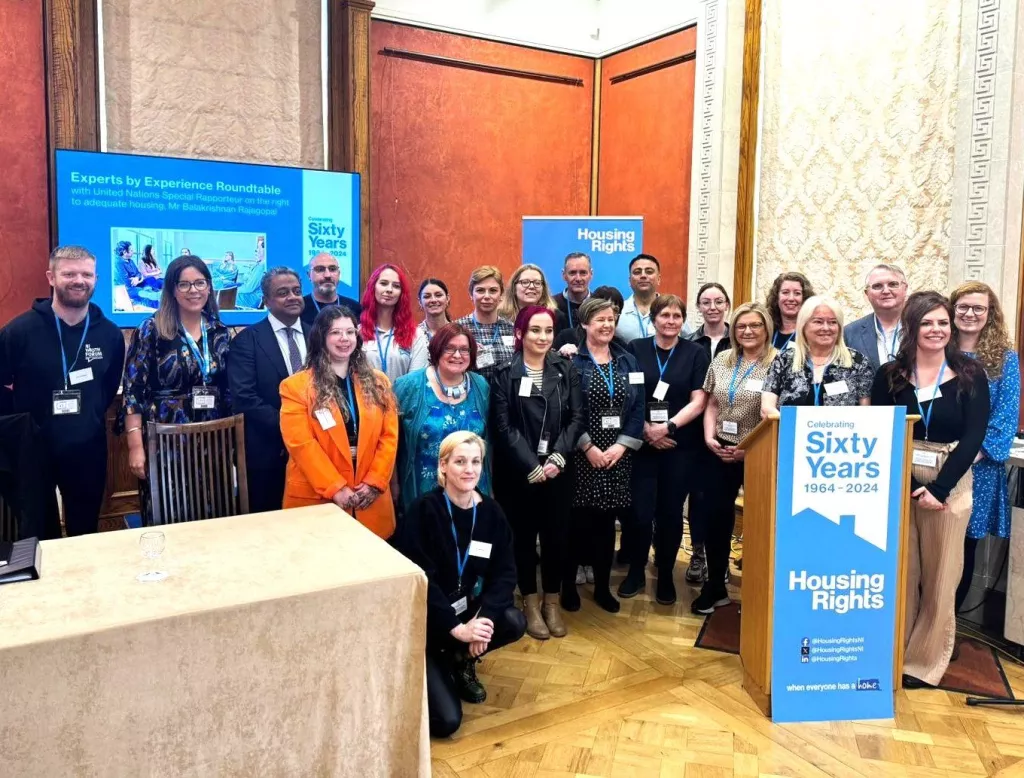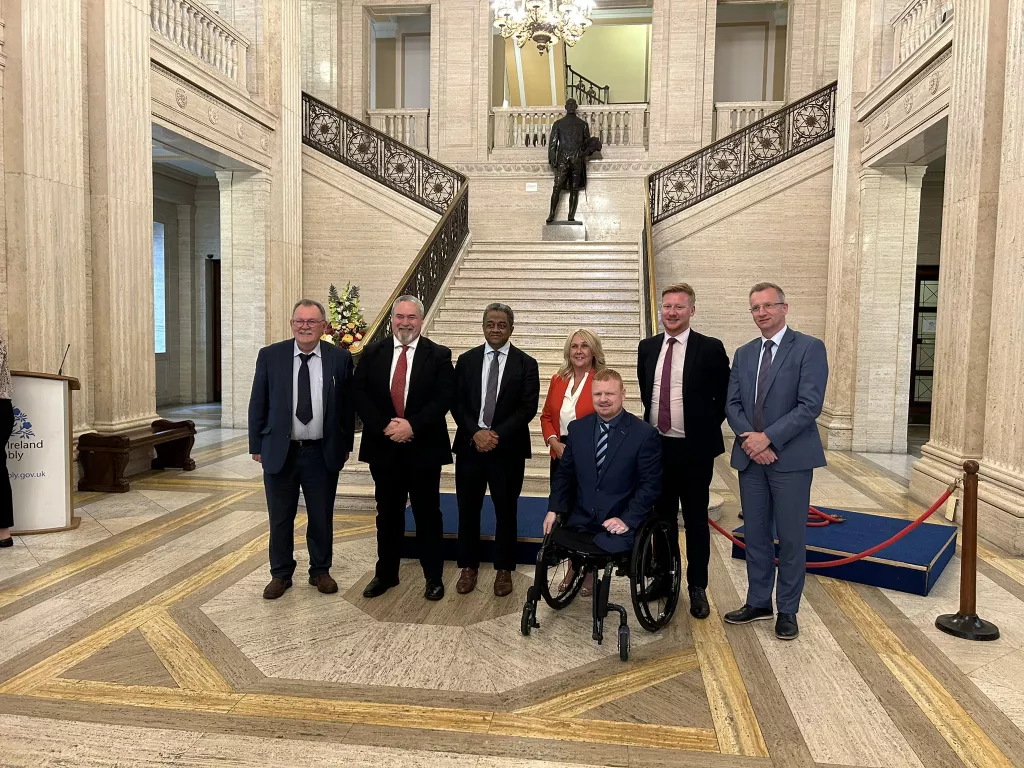Less than 12 hours after his flight into Belfast, the UN Special Rapporteur on the Right to Adequate Housing, Professor Balakrishnan Rajagopal, had just finished hearing from a roundtable of specialist organisations from the community and voluntary sector. Each organisation represented vulnerable people and groups, and each contribution clearly impacted the Special Rapporteur. He took a moment before responding.
He had been through a busy day of meetings with the Northern Ireland Housing Executive and the Northern Ireland Commissioners. He had just arrived back in Belfast, having visited a Traveller’s site in Craigavon and heard the lived experience of residents.
Having listened intently to how rising homelessness and an inability to access housing in Northern Ireland has impacted the most vulnerable groups in Northern Ireland, the Special Rapporteur made an astute observation,
Listening to you all here today, and from what I have gathered from my visit so far, it seems that I am here at the right time.
The grim reality is that Northern Ireland is experiencing a cross-tenure housing crisis, which is slipping dangerously toward catastrophe. It is indeed the right time for the UN Special Rapporteur on the Right to Adequate Housing to visit Northern Ireland.
The Northern Ireland Assembly accepts that we are in a housing crisis, a fact that the Special Rapporteur was all too aware of through the engagements he had during his visit. The statistics and evidence are clear. Forty-seven thousand households are on the social housing waiting list. Temporary accommodation spending is expected to top £35 million last year. Private renters are being subjected to unprecedented and rapid rent price inflation, and low-income homeowners are struggling to cope with the impact of high mortgage interest rates on their monthly payments.
The numbers are important and demonstrate a crisis on a national level. Yet we must not lose sight that behind every full-duty applicant, every household on the waiting list, every allocation to temporary accommodation, every increase in private rent price, and every mortgage repayment increase is a person or a family whose lives are deeply impacted by homelessness or the threat of homelessness. A person or a family who has been failed or is in danger of being failed by a housing system which has not delivered for their needs, and which is in urgent need of reform.

Each of these people is an expert in their own right, each with lived experience of housing needs, who possesses unique insight and perspectives on how we can build a housing system which meets the needs of all. It is vital that we hear their voices and take cognisance of their experiences in developing future legislation and reforming our housing sector.
For this reason, the Special Rapporteur began the second day of his visit to Northern Ireland meeting the Minister for Communities, followed by a roundtable of experts by experience. He listened intently, not only to their powerful stories but also to their ideas and solutions on how the housing sector in Northern Ireland can, and should, be improved. There was a distinct sense in the room of not being listened to by the Government, but there was nonetheless a willingness and determination to contribute meaningfully should experts by experience be included in policy design and their experiences and solutions be reflected in legislation. People in housing need know what works and what doesn’t work. It is their day and daily lived experience. Failure to take advantage of this depth of knowledge in designing policy and legislation to alleviate and prevent homelessness would be a major missed opportunity.

And legislation is needed. In remarks to the Committee for Communities, the Special Rapporteur acknowledged that we are in a housing crisis, but expressed his hope and belief that there is time to solve our issues, especially in Northern Ireland, which has made so much progress towards a peaceful society. Homelessness is a solvable problem if we change course now.
He emphasised the need for strong, rights-based legislation that prioritises homelessness prevention and housing supply. He pointed to Finland, where the Government took a Housing First approach to effectively end homelessness. He spoke of the need to stop viewing housing as a commodity and implementing strong, rights-based legislation as the starting point. This creates accountability and a strong, consistent framework for prioritising housing. From there, policies which institutionalise homelessness prevention and alleviation will flow.
As this Executive finds its feet, it must urgently embark on this journey, taking cognisance of the views of experts by experience, to solve Northern Ireland’s housing crisis.